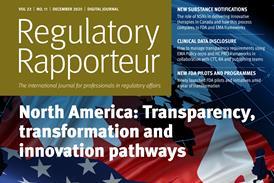All Journal articles – Page 6
-

-

-

-

-

-

-

-

-

-

-
 Journal
JournalPS1: Resolving specific development hurdles via scientific advice
Regulatory Rapporteur November 2024 | Volume 21 | No.10 Leaders: Sandra Lourenço, Director of Regulatory Affairs, Arriello, Ireland Andrea Laslop, Head of Scientific Office, Austrian Agency for Health and Food Safety, Austria Speakers: Peggy Sarah, the ...
-

-

-

-

-

-

-

-

-




















